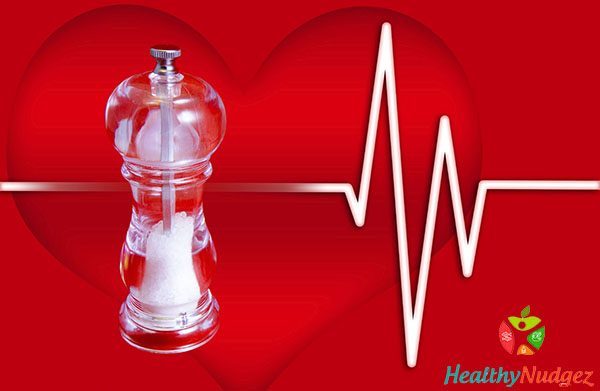Salt–hypertension Cardiovascular Risks and Stroke
It is estimated that, 62% of cerebrovascular diseases and 49% of ischemic heart disease is due to increased blood pressure, around the world. World Health Organisation (WHO), has recommended a decrease in the overall salt consumption by the world population, in order to reduce risk of deaths from hypertension, cardiovascular diseases and stroke.
Salt(NaCl), is made up of two ions sodium(Na) 40% and chloride(Cl) 60%. It is the sodium ion that is the cause of the various diseases, as increase in its concentration in blood raises blood pressure. Sodium is an essential electrolyte and serves as an important nutrient which helps in the proper functioning of the nerves and the muscles. It is also required to maintain the water electrolyte balance in the body.
Sodium is found naturally in most foods and is also added as salt, while cooking, seasoning and for preserving food. It is present in high amounts in meats and processed foods and in lesser quantities in vegetables, fruits and grains. Due to an increase in the consumption of processed and preserved foods, total salt intake, per person per day, has increased enormously. Researchers have found that about 75% of the daily salt intake comes from the consumption of processed and artificially salted foods.
The risks of high salt consumption are:
- Raised blood pressure: increased salt intake is significantly related to blood pressure. Many studies have shown that even a moderate reduction in salt intake can lead to a significant reduction in blood pressure.
- Oedema: increased salt intake leads to an increased retention of water by the body causing oedema that is swelling up of hands, feet, ankles and legs
- Increased calcium losses: increased salt intake leads to increased urination, which causes body to lose calcium every time. This loss can cause weekend bones and osteoporosis
- Kidney disease: In order to maintain the water and electrolyte balance in the body, the kidney’s have to throw the extra sodium. When the load is too much the kidney’s struggle to maintain the balance and then the increased blood pressure also puts an extra strain on the kidney’s and may lead to kidney failure.
- Renal stones: Increased salt intake over a period of time can impair kidney function and lead to retention of sodium, calcium, uric acid, etc, (in the tubules of the kidneys) leading to stone formation.
- Impaired cognitive health: Sodium is important for nerve health but increased sodium intake effects memory and cognitive performance independent of the effects caused by increased blood pressure due to increased salt intake.
Tips to reduce salt in your daily diet are:
- Include only fresh food recipes rather than packaged and processed foods.
- Add less salt while cooking and avoid use of table salt.
- Do not add salt to fruits and salads. If need be add cinnamon powder, black pepper powder, roasted cumin powder and lemon for added flavour.
- Use fresh meats and avoid processed meats and preparations.
- Avoid pickles and poppadum, as they are high in added salt.
- Avoid use of salted roasted or fried nuts, instead use soaked nuts such as almonds or unsalted nuts.
- Avoid packaged savouries (namkeen mixtures, etc.) as they have too much of salt, use home prepared mixtures having less salt.
- Avoid processed cheese and butter, instead use fresh cottage cheese and unprocessed white butter or cream in recipes and for making sandwiches, pastas, etc.
- Avoid use of bottles sauces and spreads, instead use freshly made chutneys and sauces.
- Read food labels carefully and avoid foods where salt and preservatives have sodium, are used or use them occasionally.
- While eating out, check for recipes which use less salt and also ask the chef to use less salt for the food you order.
- Reduce portion size if required, this is another way of reducing total salt intake.
- Do not use rock salt or low sodium salts as they also have sodium in them, and you end up eating more sodium then normal in order to taste up the food.
Salt is an acquired taste, it takes about 6-8 weeks to change it and to get used to of eating food with much lower quantities of salt. If once managed to be done, it will be difficult to eat foods with high salt contents such as potato chips, etc, as they are high in added salt.

